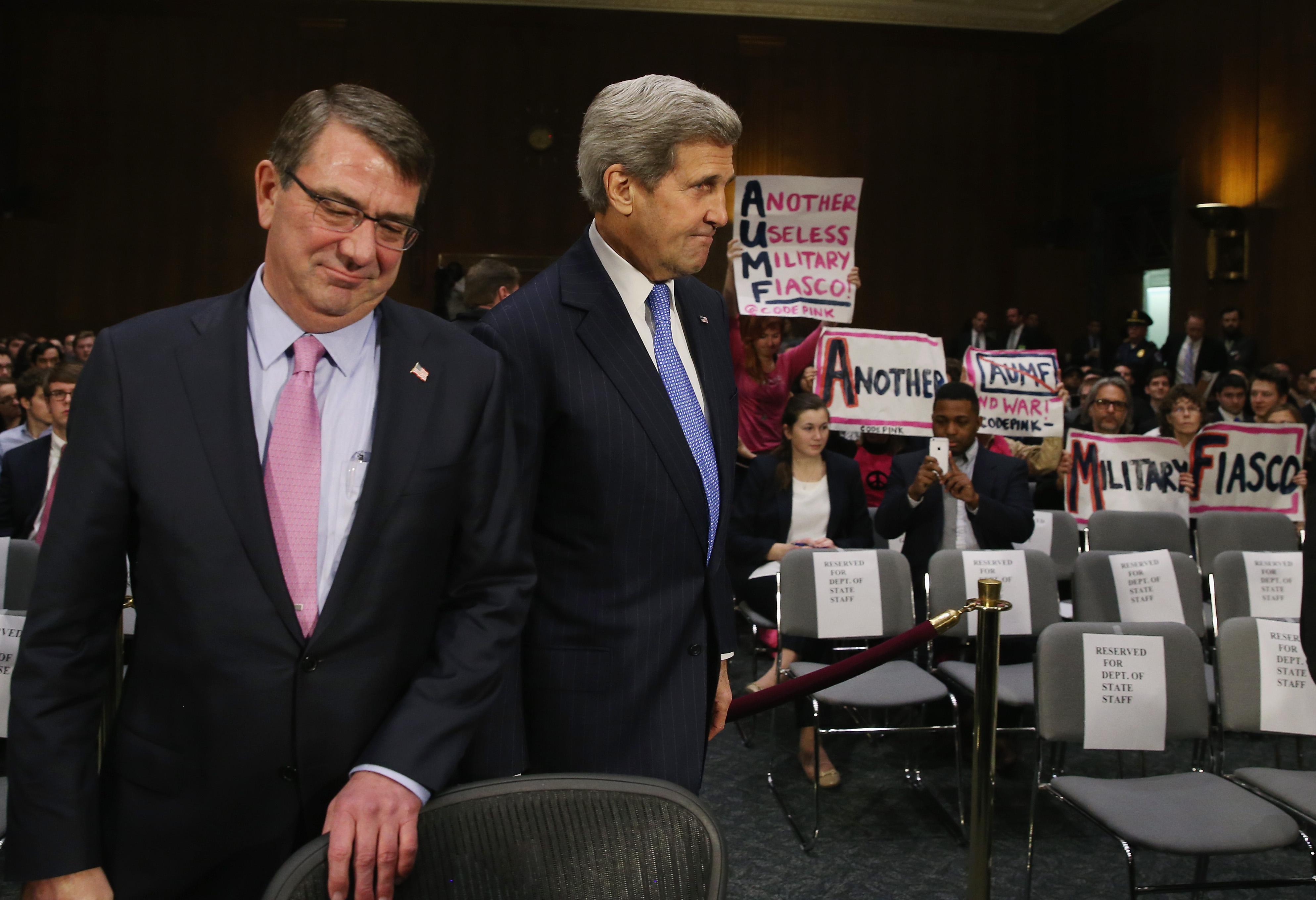At a Senate Foreign Relations Committee hearing Wednesday, the question came up of just how many terrorist groups would be covered by the White House’s proposed authorization for the use of military force, or AUMF, against ISIS.
Testifying before the committee, Secretary of Defense Ash Carter was asked if the authorization, which covers “individuals and organizations fighting for, on behalf of, or alongside ISIL or any closely-related successor entity,” could be read to allow attacks against Boko Haram, the Nigerian militant group that reportedly pledged its loyalty to the Islamic State last week.
Carter replied that the authorization “can be interpreted, but has not yet been interpreted, to cover other groups like Boko Haram.” Secretary of State John Kerry, who also testified before the committee, downplayed the idea, saying “there’s no decision made or even contemplated that [Boko Haram] would be covered,” but a number of senators were skeptical, with Sen. Rand Paul, who has joined with some Democrats in this debate in calling for a more narrowly defined resolution, saying, “If we are going to read Boko Haram into it, that is such a stretch that it’s meaningless.”
There’s good reason for skepticism about the limits of the proposed authorization. The 2001 AUMF against al-Qaida has been interpreted over the past 13 years as applying to a wide variety of groups with extremely tenuous links to the perpetrators of 9/11 and allowing a much wider range of actions than what the members of Congress had in mind when they nearly unanimously voted for it. Given that the new ISIS resolution contains no geographic constraints, and given the growing number of groups around the world now declaring their allegiance to Abu Bakr al-Baghdadi’s “caliphate,” it’s reasonable to ask whether this new authorization will be just another blank check for military action. After all, while Boko Haram poses a major security threat to West Africa and its rise has been a humanitarian catastrophe, it poses little direct threat to the United States. The kind of interpretation Carter and Kerry left dangling as a future possibility would ineed be a stretch.
That being said, the Boko Haram discussion is another example of how low the stakes of the authorization debate really are. Since the Nigerian group was previously thought to be affiliated with al-Qaida, it was presumably already covered under the 2001 AUMF. In fact, the case for including Boko Haram under the original authorization is probably stronger than that for ISIS, which the administration’s lawyers also claim is covered due to its “longstanding relationship” with al-Qaida, despite the fact that the two groups are now at war with each other.
The administration clearly realizes this doesn’t make all that much sense, which is a big part of the reason it’s now asking for an ISIS-specific authorization. But if Congress denies the authorization—which is looking more likely—that doesn’t mean the war is over. The Obama administration and its successor can continue attacking ISIS—as well as, potentially, more far-flung organizations like Boko Haram—under George W. Bush’s old al-Qaida authorization. At a time when the situation on the ground in Iraq and Syria seems to be moving much faster than U.S. strategy can adapt, the debate over that strategy in Washington has never looked less relevant.
